Aminata Dia vividly remembers the first time she ate frozen food. “It was french fries, and it wasn’t until I was a teenager,” she says. “It’s a strong memory because we grew up in a family that really cooked everything from scratch.” Born to Senegalese immigrants, Aminata (“Ami”) and her younger sister Rougui grew up in Paris, frequenting the Rungis food market with their father in the pre-dawn hours. Despite this early morning education, their parents weren’t in the restaurant business; the family’s food traditions simply called for fresh, unprocessed ingredients.
These days, the sisters are seeking a different kind of fresh perspective—this time, on French cuisine—at Le French in Denver, Colorado. Opened in April 2019, the restaurant is Ami and Rougui’s first collaborative culinary venture after nearly two decades of living an ocean apart. It’s a dream they’ve been discussing for longer than they can remember—but there were five children to raise and a bar-setting Michelin star to earn (respectively) in the meantime.
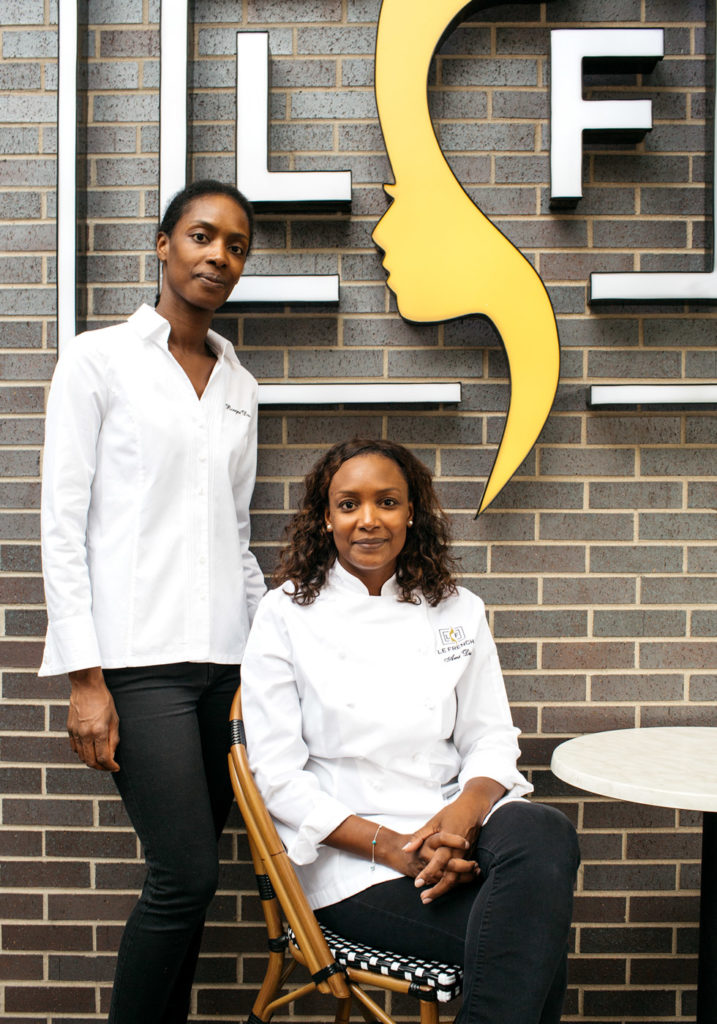
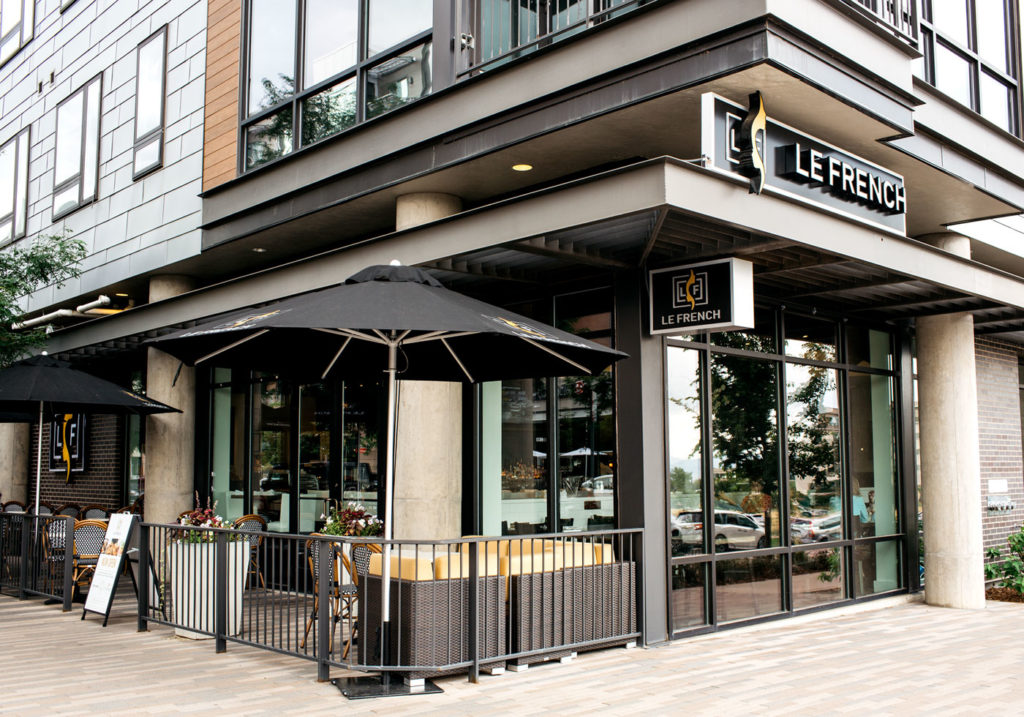
Eighteen years ago, Ami touched down in San Francisco with her family, relocated by her husband’s career in IT. In France, after initially studying clothing design, she had pursued a career in catering. But newly emigrated to the United States, her primary concern was a family of young children to raise—and feed. “It’s true that other countries don’t think much of American cooking,” she says. “But having grown up in a multicultural household and traveled internationally, I came to the U.S. with a sense of openness. What I found was very much a melting pot—a global culinary culture.”
In particular, Ami was drawn to “fusion cuisines” where ingredients and techniques were exchanged freely, developing wholly new flavor combinations and recipes. As she traveled throughout the States—and eventually moved to Colorado—she also discovered the diversity of America’s regional cuisines, from the fresh seafood of coastal New England to the bold spice of the Southwest. These experiences planted the seed for a new business venture, although she and her husband agreed it should wait until their five children were fully grown.
Back in Paris, Rougui was striving to make a name for herself as a fine-dining chef. Having entered culinary school at the age of fifteen, her path was that of the young apprentice-turned-professional. “I was drawn to cooking because it combined both creativity and an intense, militaristic training,” she explains. “I had an inherent desire to always progress, to stay motivated and challenge myself.” That drive served Rougui well, earning her an executive chef title in 2005 at Le Petrossian 144, where she became the first black woman to helm a Michelin-starred restaurant—not just in France, but internationally.
Yet it was neither in France nor America that the sisters first tested their compatibility in the kitchen. A few years ago, Rougui was invited to cook at a series of events in Brazil and asked Ami to join her. Amidst the chaos of cooking on the road, the pair began to discover a synchronicity between their palate and perspectives. “We both have very strong personalities, and there are certainly moments where we frustrate each other,” Ami laughs. “But each time we overcome a moment of conflict—and opening a restaurant is full of difficulties—we’ve found it reinforces our motivation to work together.”
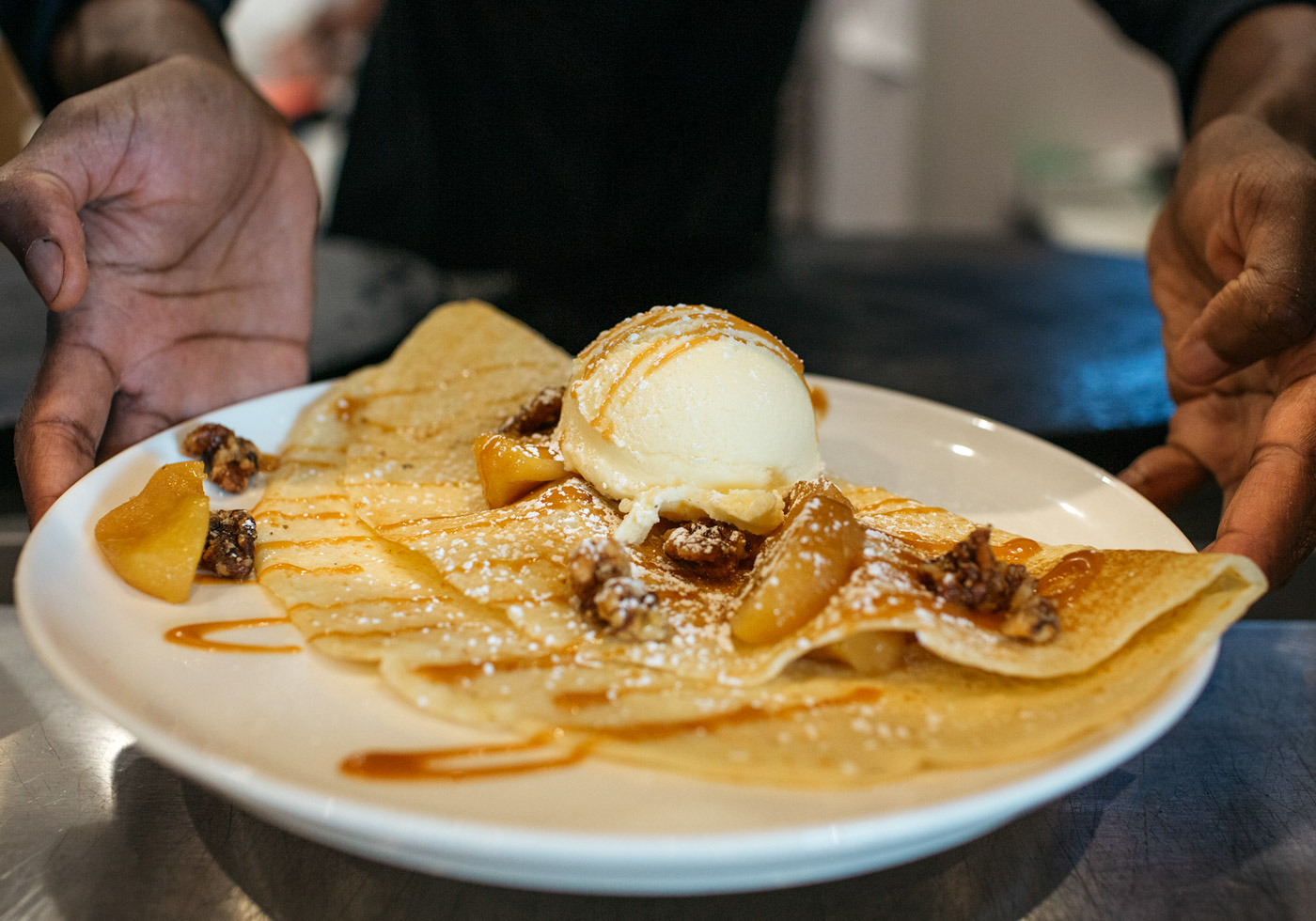
Of course, leaving behind her Michelin star and professional network in France was no small decision for Rougui. “After many years of working in France, I had realized the dream of being ‘at the top of my game.’ But coming to Denver, I’m really starting over,” she tells me. “It’s a new opportunity to prove myself and to explore new ingredients, new flavors, new experiences.” It was also an opportunity to create a more casual dining environment, while building on the technique she had honed in Paris.
Beyond the question of fine or casual dining, the seemingly straightforward name of their restaurant—Le French—has put the sisters in the position of considering whose French cuisine they are really cooking. In America, French cuisine has predominantly been defined by expensive, lavish restaurants noted for their impressive presentation and rich flavors. Yet in France, “French” cuisine exists on every corner, from the small sandwich shop, to the everyday bistro, to the lauded three-star Michelin temples of gastronomy.
“The question of ‘what is French cuisine?’ presents both an opportunity and a challenge for us,” Ami reflects. “At night, our menu is more global and modern in style, but during lunch, we’ve chosen to include a croque monsieur, soupe à l’oignon and boeuf bourguignon. We rarely eat those classic dishes in France, but we wanted to reclaim them in a way that both respects tradition and shares a new perspective.”
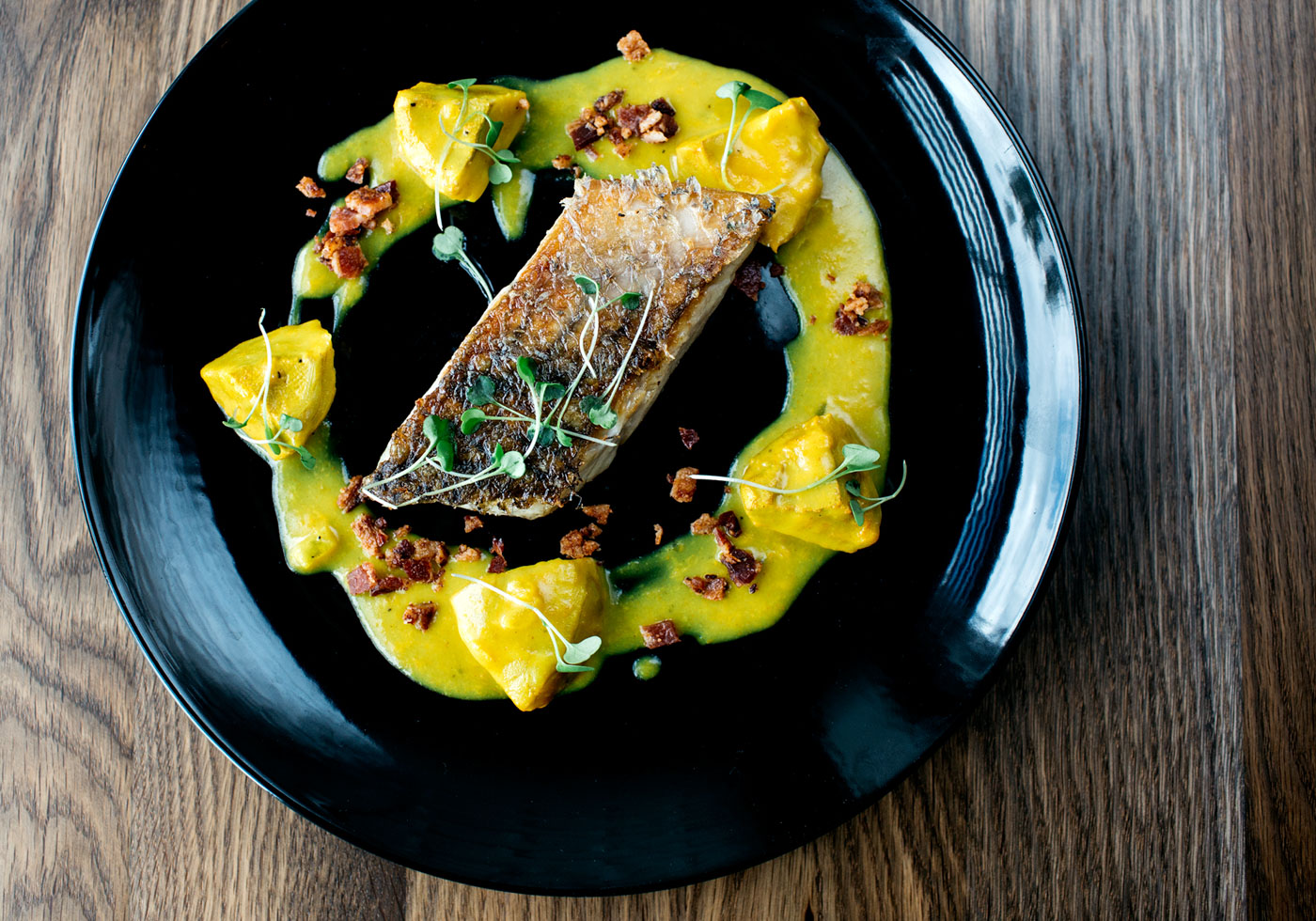
The sisters, of course, are also influenced by their Senegalese heritage and upbringing. As a former colony, Senegal’s cuisine has incorporated certain French ingredients—notably, dijon mustard—and the cuisine of France has been influenced by its former colonies in turn. In fact, in a 2006 poll the French people named couscous as the country’s favorite dish, reflecting how profoundly international cuisines have become a part of the everyday French culinary lexicon.
“Our customers often have a strict idea of what French food should be,” Ami acknowledges. “But in France, cuisine is always evolving. It’s very open to other cultures, to new techniques and perspectives. And in presenting a menu that is true to our personal experience, we are demonstrating that evolution—which may be different than what others will anticipate our food will be.”
According to Rougui, the most obvious trace of the sisters’ Senegalese culture can be seen in “the more familial, approachable perspective we are bringing to French cuisine.” When traveling to Senegal, the sisters explain, it’s not uncommon for an entire village to prepare a dish to welcome guests to the village—and to continue that tradition morning, noon and night throughout their visit.
From a culinary perspective, Ami adds, “Senegalese food is all about layering flavors. There aren’t many spices, and the ingredients don’t vary all that much.” Onions, salt, pepper, tomatoes—and occasionally vinegar or lemon—are the staples of the Senegalese pantry, but it is the freshness of the ingredients and the low, slow cooking techniques that transform these common combinations into a multitude of dishes.
At Le French, diners will encounter such fascinating dishes as sea bass with crispy bacon, artichoke confit and turmeric emulsion. It’s impossible to eat such a dish and assign it as French, Senegalese or even American. “This dish represents that we are drawing not only from our personal heritage, but from all the cultures we have experienced,” Ami continues. “We enjoy finding complementary flavor combinations that our guests may have never tried or certainly don’t expect.”
On the other hand, Ami notes there are certain quintessential French dishes and techniques the sisters insist on. “We’ve had crêpes on the menu since opening. Americans tend to make all crêpes with white flour, but for our savory crêpes we use buckwheat—the traditional method in Brittany.” For their sweet crêpes, however, the sisters do adjust the traditional recipe, using gluten-free white flour. “The flavor is very similar, and we want to accomodate guests who have an allergy.”
For Ami and Rougui, this dance between tradition and innovation—as well as French, Senegalese and American culture—comes naturally. Sharing creative responsibilities in the kitchen, each dish is inherently a fusion of their separate life experiences. “We want our cuisine to be one of discovery,” Rougui explains. “It’s a thing we don’t have to seek to bring to the table—it’s always there, because it’s a part of us.”





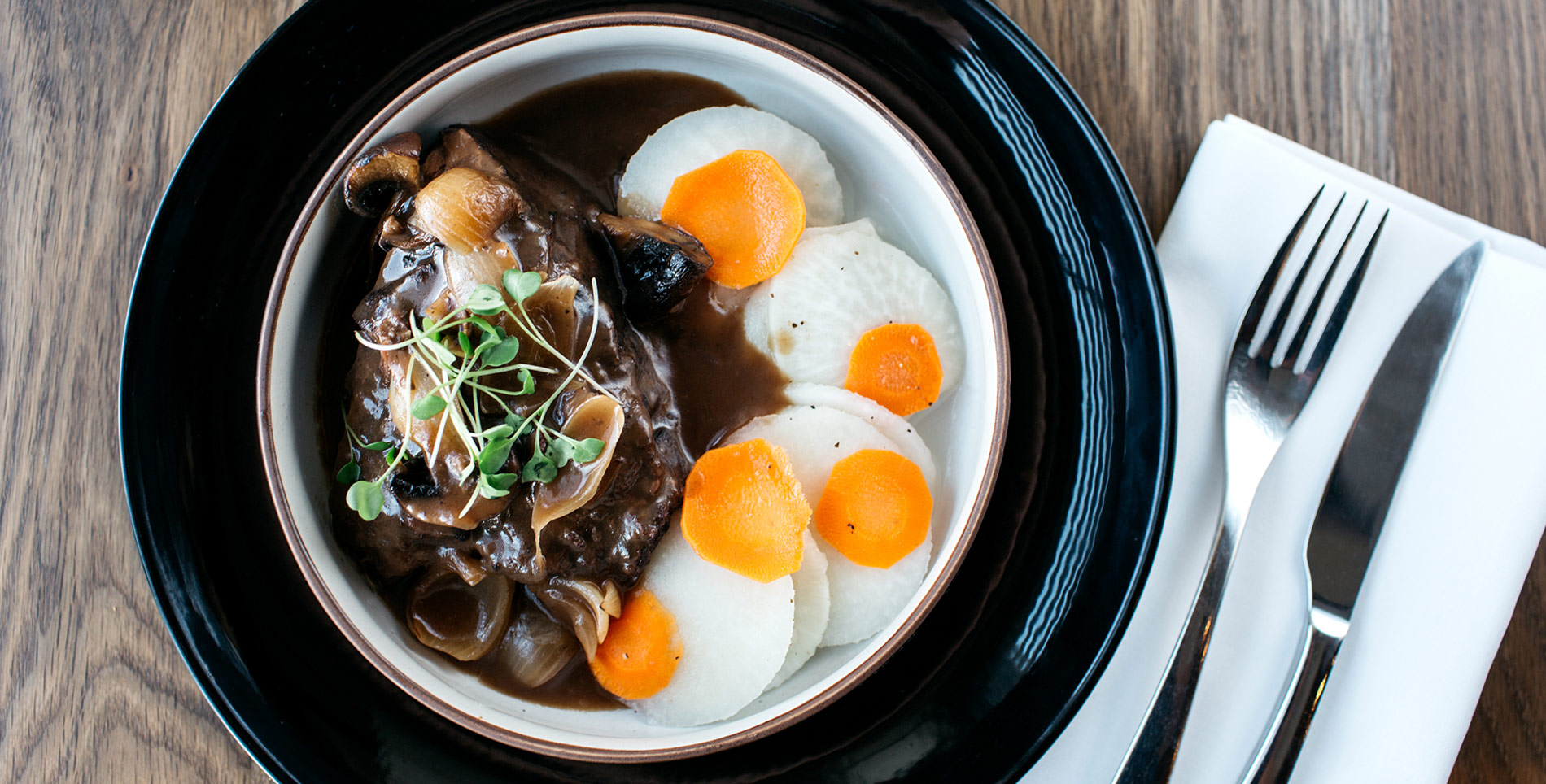

Our comments section is for members only.
Join today to gain exclusive access.